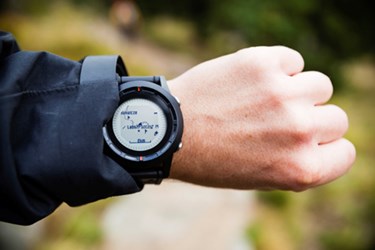Senator Calls Use of Wearables A ‘Privacy Nightmare'

By Christine Kern, contributing writer

New York’s Chuck Schumer tells FTC regulation of wearable is necessary.
Senator Chuck Schumer (D-NY) issued a statement calling for federal protections to guard consumers from a “privacy nightmare” that could be created by FitBit and other wearable fitness trackers, according to the Associated Press. Specifically, Schumer expressed concern that companies behind wearable products could sell data from these devices to third parties.
“Personal fitness bracelets and the data they collect on your health, sleep, and location, should be just that – personal. The fact that private health data – rich enough to identify the user’s gait – is being gathered by applications like FitBit and can then be sold to third-parties without the user’s consent is a true privacy nightmare,” Schumer said.
Schumer wrote that he sees a potential “privacy nightmare” if such are allowed to profit from selling user biometrics data to third party data brokers like Acxiom. He also worried that such data could be shared with insurers, mortgage lenders, or even employers.
Schumer’s press release announcing his concerns about FitBit declared, in all capital letters, “WITHOUT THEIR KNOWLEDGE, FITBIT BRACELETS & SMARTPHONE APPS ARE TRACKING USER’S MOVEMENTS AND HEALTH DATA THAT COULD BE SOLD TO THIRD PARTIES.” In his statement, the senator exhorts the Federal Trade Commission to require companies to notify consumers if their fitness and location data could be sold to third parties — and to provide an opt-out option to users.
“If companies of fitness devices have the ability to sell personal health data to insurers, employers and others, users should be alerted and given the opportunity to decline,” said Schumer. “The FTC should require fitness devices and app companies to adopt new privacy measures that will help conceal the identity of individuals and develop policies to protect consumer information in the event of a security breach.”
Schumer’s press release noted the FTC “has openly voiced its concern about the selling of personal fitness data between companies, but has yet to take action to push application developers and other fitness monitoring companies to provide an opt-out opportunity.” The press released also suggested that, without adequate protections, “users’ health information obtained via these trackers could be sold to insurers, mortgage lenders, or employers.”
FitBit has already released a statement denying that it shares personal data with third parties.
Earlier this year, the FTC did a study on this subject and discovered 12 mobile health and fitness apps were sending users’ personal information to 76 different third parties, including advertising companies and data brokers.
FTC Commissioner Julie Brill has also established that she considers collection and use of data to be one and the same, and thinks there should be heavy restrictions on how and when personal health data can be collected, which would have a major impact on the future of mobile health.
Yet, the collection of personal health data could also benefit health researchers could benefit. A study conducted last April found 90 percent of the consumers polled are ready to share personal health information to help researchers better understand a disease, particularly if they can do so anonymously.
